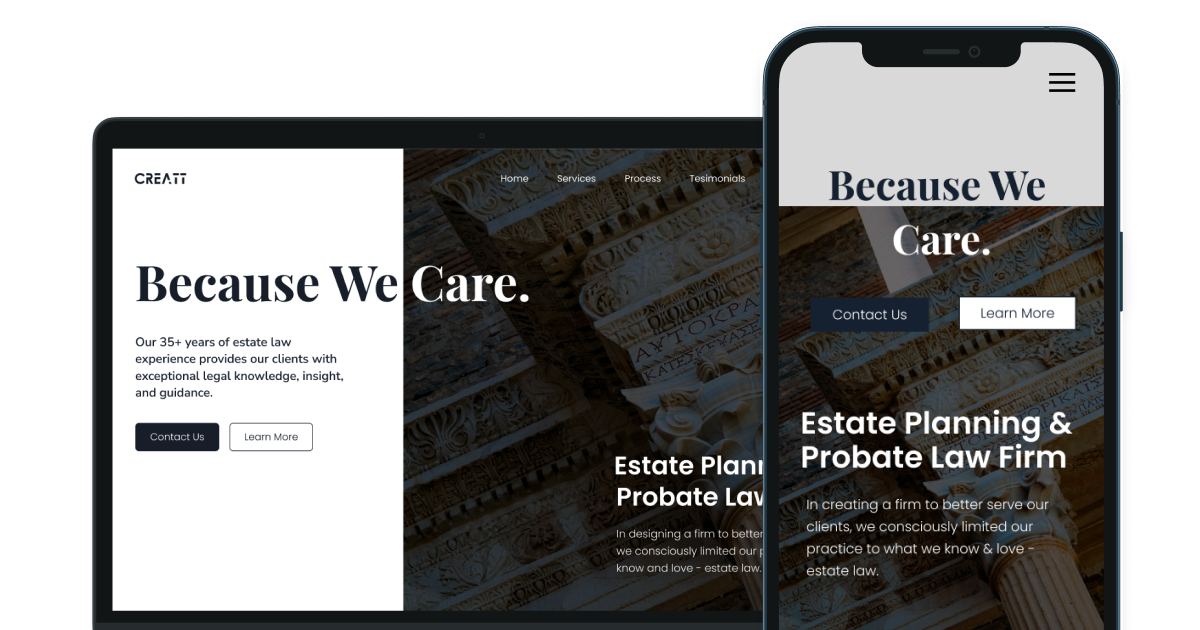Shingle Blog
Legal Business, Tech and Marketing content
Tech Tips

As a lawyer, you might be hesitant to invest in marketing your law firm. After all, your primary focus is on practicing law and providing the best possible legal services to your clients. However, marketing is a critical component of running a successful law firm, and it can bring significant benefits to your practice. In this blog post, we'll explore why lawyers should invest in marketin g and the benefits of marketing a law firm. 1. Attract More Clients One of the most significant benefits of marketing a law firm is the ability to attract more clients. When you market your law firm effectively, you increase your visibility and reach a larger audience. This can lead to more inquiries from potential clients, which can ultimately lead to more business for your law firm. With effective marketing strategies, you can target your ideal clients and ensure that your law firm is top of mind when they need legal assistance. 2. Establish Your Expertise Marketing your law firm also provides an opportunity to establish your expertise and build your reputation in your practice area. By creating high-quality content such as blog posts, articles, and videos, you can demonstrate your knowledge and experience to potential clients. This can help you build trust and credibility with your audience, making it more likely that they'll choose your law firm when they need legal assistance. 3. Stay Ahead of Your Competition In today's competitive legal market, it's essential to stay ahead of your competition. By investing in marketing, you can differentiate your law firm from others in your practice area and stand out in a crowded market. With effective marketing strategies, you can create a unique brand identity and develop a strong online presence that sets you apart from your competitors. 4. Increase Your Revenue Ultimately, the goal of marketing a law firm is to increase revenue. By attracting more clients, establishing your expertise, and staying ahead of your competition, you can generate more business for your law firm. With effective marketing strategies, you can increase your revenue and grow your law firm over time. In conclusion, marketing is an essential component of running a successful law firm. By investing in marketing, you can attract more clients, establish your expertise, stay ahead of your competition, and increase your revenue. Whether you're just starting your law firm or looking to take your practice to the next level, marketing can help you achieve your goals and build a thriving practice.

Closing deals is already hard, but is it actually easier to close remotely? With the COVID-19 pandemic, remote consultations became the norm for many professionals, including lawyers! Even as we move towards a post-pandemic world, remote consultations are likely to remain popular for their convenience and accessibility. However, closing consultations remotely can be a bit more challenging than in-person meetings. In this blog post, we will explore some tips on how to close consultations remotely post-pandemic. Make a Strong First Impression When conducting remote consultations, making a strong first impression is essential. Start by introducing yourself and your law firm, and thank the client for considering your services. Dress professionally and maintain good eye contact and listen intently to show that you take their case seriously. If possible, have your paralegal or an assistant take notes. Use Video Conferencing Tools Video conferencing tools, such as Zoom, Skype, or even Google Meet can be incredibly useful for closing consultations remotely. They allow you to have a face-to-face conversation with clients from anywhere, just like an in-person meeting. Make sure you have a stable internet connection and use a quiet, professional-looking space to conduct the call. Ensuring your microphone and video quality are up to standards is essential to your look of professionalism as well. Discuss Your Fees and Billing Policies During the consultation, it's essential to discuss your fees and billing policies clearly. Make sure the client understands what they will be charged, how and when they will be billed, and what payment methods you accept. Be transparent about your fees to avoid any misunderstandings later on. Send a Follow-Up Email After the consultation, send a follow-up email to the client to summarize the key points discussed during the meeting. Include your contact information and any next steps that need to be taken. This will show the client that you are organized and professional and give them a clear idea of what to expect moving forward. An extra tip to save time is to have a rough outline of this in an email template that you can easily re-use, that way you can focus on the details of your potential client and their case. Keep Communication Channels Open Keeping communication channels open is essential for closing consultations remotely. Make sure the client knows how to contact you and when you are available. Promptly respond to any emails or phone calls to show that you are attentive to their needs and care about their case. In conclusion, closing consultations remotely post-pandemic requires a bit of adjustment, but it's a great way to continue serving clients efficiently and conveniently. By making a strong first impression, using video conferencing tools, discussing your fees and billing policies, sending a follow-up email, and keeping communication channels open, you can close consultations remotely successfully. Remember, even though the consultation is over, your relationship with the client has just begun. Keep them informed and engaged throughout their case to build a lasting relationship.

CCPA and GDPR are no doubt complicated, but here’s a guide to keep things simple. The California Consumer Privacy Act (CCPA) and the General Data Protection Regulation (GDPR) are two of the most important data privacy laws in the world. If your law practice collects, processes, or stores personal information, then it is essential to understand the implications of these laws. In this blog post, we'll explore what CCPA and GDPR mean for your law practice and how you can comply with these regulations. 1. CCPA The CCPA is a data privacy law that came into effect in California in 2020. It applies to any business that collects personal information from California residents and meets certain revenue or data collection thresholds. As a law practice, you may collect personal information from your clients, including their names, addresses, phone numbers, and other sensitive data. Therefore, it is essential to understand the implications of the CCPA for your law practice. As many people who are in the know are aware of, other states are soon to follow with similar regulations. Under the CCPA, individuals have the right to know what personal information is being collected about them, the right to request that their information be deleted, and the right to opt-out of the sale of their information. To comply with the CCPA, your law practice should provide a clear and concise privacy notice that outlines the types of personal information you collect and how that information is used. You should also have procedures in place to respond to requests for information, deletion, and opt-out. 2. GDPR The GDPR is a data privacy law that came into effect in the European Union in 2018. It applies to any business that collects, processes, or stores personal information from EU citizens, regardless of where the business is located. As a law practice, you may have clients or contacts in the EU, which means that you must comply with the GDPR. Under the GDPR, individuals have the right to know what personal information is being collected about them, the right to request that their information be deleted, and the right to object to the processing of their information. To comply with the GDPR, your law practice should provide a clear and concise privacy notice that outlines the types of personal information you collect and how that information is used. You should also have procedures in place to respond to requests for information, deletion, and objection. 3. Compliance Tips To comply with both the CCPA and the GDPR, here are some tips that you should keep in mind: Conduct a data inventory to identify the personal information you collect, process, and store. Provide a clear and concise privacy notice that outlines the types of personal information you collect and how that information is used. Establish procedures to respond to requests for information, deletion, and objection. Train your staff on data privacy best practices and ensure that they understand their roles and responsibilities Consider appointing a Data Protection Officer (DPO) to oversee data privacy compliance. In conclusion, the CCPA and GDPR are two of the most important data privacy laws in the world. They are the models for which other states will base their data protection laws off of, so understanding them is important. As a law practice, it is essential to understand the implications of these laws and how they could potentially affect your practice. By following the tips outlined above, you can ensure that your law practice is in compliance with these regulations and protect the personal information of your clients.

Analytics are key to growth, know your metrics! As somebody who wants to see your business grow, you need to track your key performance indicators (KPIs) to make informed decisions and optimize your performance. However, with so many metrics to choose from, it can be overwhelming to figure out which KPIs to track. In this blog, we'll discuss five KPIs that you should always be tracking on your analytics dashboard. 1. Website Traffic Website traffic is one of the most important KPIs that you should track. It gives you an overview of how many people are visiting your website, where they are coming from, and what pages they are viewing. By tracking your website traffic, you can identify which marketing channels are driving the most traffic to your site, and which pages are generating the most engagement. 2. Conversion Rate Conversion rate measures the percentage of website visitors who complete a desired action, such as filling out a form, making a purchase, or subscribing to your newsletter. By tracking your conversion rate, you can identify which pages on your website are most effective at converting visitors into customers, and which pages need optimization. 3. Customer Acquisition Cost (CAC) (CAC) measures how much it costs to acquire a new customer. The calculation of CAC takes into account all of the costs associated with acquiring a customer, including marketing and advertising expenses, sales commissions, and other costs related to generating leads and closing deals. Knowing your CAC is important because it allows you to measure the effectiveness of your marketing and sales efforts. If your CAC is high, it may indicate that you need to optimize your marketing and sales processes to reduce costs and improve conversion rates. Conversely, if your CAC is low, it may indicate that your marketing and sales efforts are performing well and that you can invest more in those areas to drive growth. Ultimately, understanding your CAC is critical to making informed decisions about how to allocate your marketing and sales resources and optimize your customer acquisition strategies. 4. Customer Lifetime Value (CLV) CLV measures the total amount of revenue that a customer will generate over their lifetime as a customer. By tracking your CLV, you can identify which customer segments are most valuable to your business and optimize your marketing and sales strategies to retain and upsell those customers. 5. Churn Rate Churn rate measures the percentage of customers who cancel or unsubscribe from your products or services over a specific period of time. By tracking your churn rate, you can identify which products or services are causing the most churn and take corrective actions, such as improving product quality or providing better customer support. In conclusion, tracking the right KPIs is essential to optimizing your business performance. By including website traffic, conversion rate, customer acquisition cost, customer lifetime value, and churn rate on your analytics dashboard, you can gain valuable insights into your business and make data-driven decisions that will help you achieve your goals.

Leadership is expected, but what are the others 4 skills? As a law firm owner, it can be challenging to scale your business to the next level. You may be an excellent lawyer, but running a successful law firm requires a different set of skills. In this blog post, we will discuss four must-know skills to scale a law firm. 1. Business Development One of the critical skills for scaling a law firm is business development. You need to have a plan in place for attracting new clients and retaining existing ones. This involves networking, marketing, and building relationships. You must be able to identify your ideal client and create a strategy for reaching them. Utilize social media platforms, attend industry events, and join local business groups to expand your network. 2. Financial Management To scale a law firm successfully, you need to have a solid understanding of financial management. You must keep a close eye on your finances to make informed business decisions. This involves creating a budget, tracking your expenses, and monitoring your revenue. You must also know how to read financial statements and understand key performance indicators (KPIs) to measure the success of your business. 3. Team Management As your law firm grows, you will need to manage a team of lawyers and support staff. You must be an effective leader who can inspire and motivate your team. This involves setting clear expectations, providing feedback, and delegating tasks appropriately. You must also create a positive work environment that promotes teamwork and collaboration. 4. Technology In today's digital age, technology plays a crucial role in scaling a law firm. You must stay up-to-date with the latest technology trends and tools to remain competitive. This includes utilizing case management software, e-discovery tools, and document automation software. You must also invest in cybersecurity to protect your firm's data. In conclusion, scaling a law firm requires a different set of skills than practicing law. To succeed, you must be proficient in business development, financial management, team management, and technology. By developing these skills, you can take your law firm to the next level, and achieve whatever your firm's business goals are!



